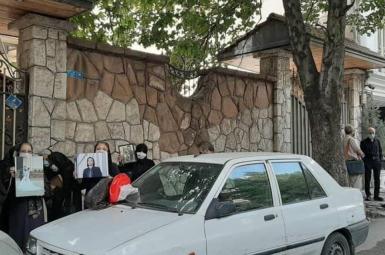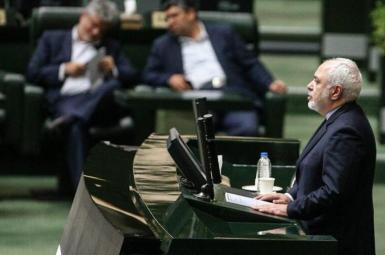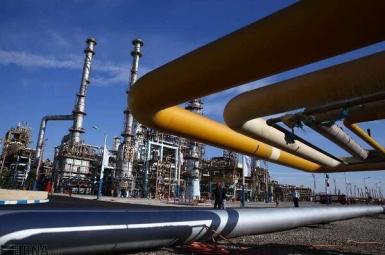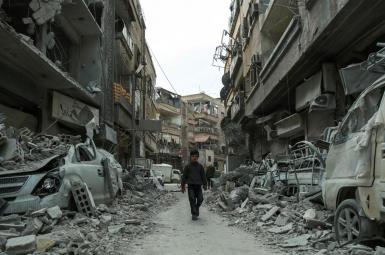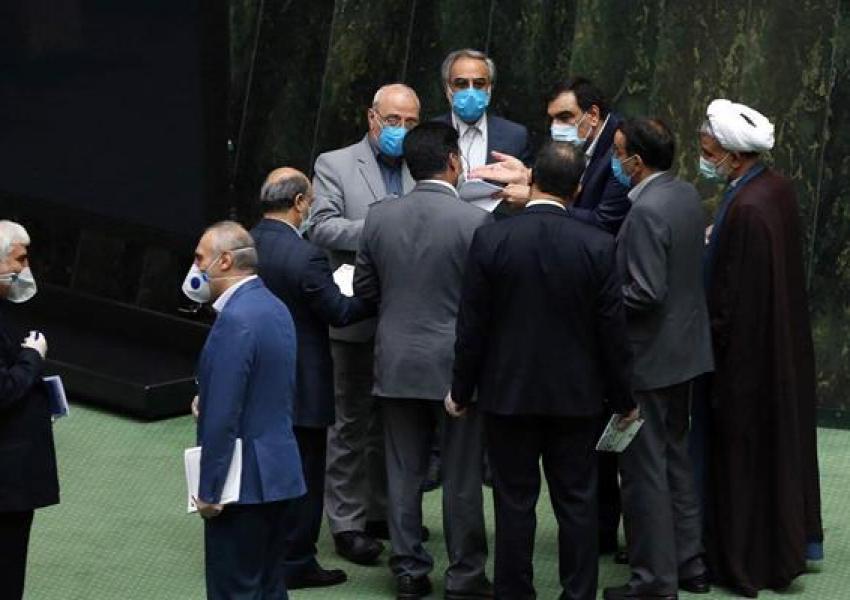
Audit Court Budget Report: Institutional Corruption or Power Struggle?
The escalation of the factional conflict between President Hassan Rouhani's administration, on one side, and the IRGC, the judicial system, and the fundamentalist faction, on the other, is not new. But, the important issue about the new dispute is its timing, as it was expected that the escalation of US sanctions and the outbreak of the new Coronavirus to prevent sectarian clashes during this very sensitive period. There are many motives for resuming such disputes, perhaps one of the most important of which is to increase the IRGC's political and social role with the advent of the Corona crisis while reducing the role of the government in managing internal crises, especially since high-ranking military officials and Organizations Under the Control of the Supreme Leader have always blamed the policies of Hassan Rouhani's administration for Iran’s situation following the United States withdrawal from the JCPOA.
However, new political and factional tensions in Iran began after Adel Azar, the head of the Supreme Audit Court, read out the 2018 budget settlement report on Tuesday, April 14. According to the report, out of the $ 31 billion allocated for the import of essential goods in 2018, an amount of $ 8.4 billion has been unaccounted for. According to Azar, one of the reasons is allocating dollars at the government rate (4200 Tomans) to local importers. Because of the difference between the government rate and the real price, local importers must have either sold this currency in the domestic market or imported other goods, such as cars, instead of essential goods.
What was remarkable about this new conflict was Hassan Rouhani’s speedy reaction to the remarks of the head of the country's Audit Court. He said that in order to calculate how the money was spent, the Audit Court should supervise every natural and legal person using the government's budget, including all revolutionary, cultural, and institutional organs. “Monitoring the budget should not be limited to just one organ. We have no insiders or outsiders. Everyone is an insider here", Rouhani said.
The reasons for this new tension can be explained by several considerations, some of which are briefly mentioned below.
- The presidential elections are drawing near: After overpowering the most important figures of the fundamentalist side during two terms, the eight years of Rouhani's presidency are coming to an end; the next presidential elections will be held next summer. The president and his pro-moderate current know that one of the most important goals of increasing pressure on the government during this period is to prepare the public for conservative candidates in the upcoming election campaign. This process of escalating tensions is a continuation of the fundamentalist program following their victory in the 11th legislative elections with the help of the Guardian Council and it can be interpreted as total union of the State agents and also the fundamentalists control over every overt and covert institution.
- The reduction of the government’s role in managing the Corona crisis: Recent pressures must be considered alongside the role of the State institutions in combatting the Coronavirus. Parallel to the ongoing criticism of the government's actions, both in terms of how to manage the Corona crisis and how to deal with US sanctions, widespread publicity for the presence of military institutions, especially the IRGC, to control the Coronavirus began. In this regard, some news agencies close to the IRGC highlighted the efforts of Iranian proxy groups, such as the Iraqi Al-Nujaba paramilitary group, to control and combat the spread of the new Coronavirus, especially in Qom. The IRGC's goal in doing so was to show the government's weakness in controlling and managing internal crises and to send a message to the United States and Iran's regional rivals that these paramilitary groups are ready to make any sacrifices to protect the Islamic Republic.
- The competition between high-ranking officials: The policy of the Supreme Leader has always been to assign an important position to the defeated candidate in important elections, such as the presidential elections. This is done, on the one hand, to keep them indebted to him, and on the other hand, to show his disregard for the people’s vote; it also maintains the balance of power in important government organs. That is why, in recent years, especially after the appointment of Ebrahim Raissi, a trusted element of the Supreme Leader who was defeated in the previous presidential elections, as the head of the Judicial system, "tension" has been an important feature of the relations between the executive and the judicial branches in Iran.
In this regard, the judicial system supported the IRGC's actions in the Corona crisis and as soon as the budget report was announced in the parliament, Ebrahim Raissi assigned a committee to investigate the financial charges against government officials in relation to the ‘missing dollars’. Not only did Ebrahim Raissi praise the IRGC, but he also made biting criticisms of Hassan Rouhani’s earlier remarks: "if we had accepted the opinion of the Ministry of Health experts on quarantine and social distancing, we would not be in the current situation."
- Factional pressures: The wave of criticism and increasing pressure against Hassan Rouhani's administration was not limited to the Audit Court and the judicial system; some of the most important leaders of the fundamentalist faction have also been vocal about this, including Mohammad Bagher Ghalibaf, who will possibly be elected as the Speaker of the 11th parliament. Earlier, to pressure Rouhani's government, he said that "the government itself exacerbates the crisis, then asks for help, and finally blames others." His words caused Rouhani’s response: "those who are soon going to be in charge had better participate in the fight against the Coronavirus."
Given what has happened, it is possible that the pressure on the government, as in the case of the recent report of the Supreme Audit Court, will continue until the end of Hassan Rouhani's second term. Conservatives will try to increase their chances of running for president next summer by taking advantage of the Corona crisis and the consequences of the US "maximum pressure campaign" and by gaining this position, along with their conquest of nearly all of the 11th parliament seats, restore the country to its situation before 2013.



